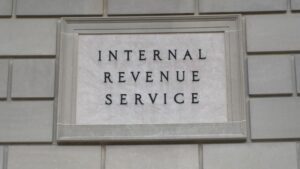The New York State Archives has awarded $6.8 million in Local Government Records Management Improvement Fund (LGRMIF) grants to 111 local governments, school districts, and educational institutions to help improve records management systems.
The IRS is teaming up with state tax agencies and software and financial industries firms on a new initiative to combat steep upticks in fraudulent attacks on taxpayers and tax systems.
In a letter to all school districts in his state, Calif. Gov. Gavin Newsom called on school leaders to restrict student smartphone use in classrooms as the new academic year begins.
Miami Dade College (MDC) is partnering with Texas-based Houston Community College (HCC) and Arizona-based Maricopa County Community College District (MCCCD) to create the National Applied Artificial Intelligence Consortium (NAAIC), an initiative that aims to foster the growth of technician-level artificial intelligence (AI) professionals across the nation.
The National Association of Counties (NACo) is piloting an Artificial Intelligence (AI) Leadership Academy, an online program to equip frontline county government leaders with practical knowledge and tools.
The City of Boston is working with Google’s Project Green Light team to optimize traffic signal timing and improve traffic flow in highly congested areas.
The Alameda-Contra Costa Transit District, Calif., (AC Transit) announced that 100 buses will be equipped with artificial intelligence (AI)-powered cameras to detect vehicles illegally stopped or parked at bus stops.
The Georgia Department of Transportation (DOT) has launched Reach Home Safely, a safe driving app to improve road safety and prevent crashes.
The Idaho Department of Health and Welfare (IDHW) has selected NTT DATA, a digital IT services provider, to support the modernization of the state’s Medicaid Management Information System (MMIS).
In a move that will connect more than 25,000 homes and businesses to high-speed broadband, New York Gov. Kathy Hochul announced more than $70 million in funding awards through ConnectALL’s Municipal Infrastructure Grant Program.













